At nine years old, most little girls are busy collecting friendship bracelets, doodling in notebooks, or chasing after ice cream trucks on warm afternoons.
But for Aleida Perez, childhood looks very different.
Her days begin not with cartoons or school bells, but with the steady beeping of machines and the sterile scent of antiseptic.
Her world has become a hospital room — four white walls that now hold her fiercest battle yet.
Aleida is fighting Acute Myeloid Leukemia (AML) — a fast-moving cancer that attacks the blood and bone marrow, leaving her tiny body weak, exhausted, and constantly in pain.
And despite her bravery, despite her mother’s endless prayers, the disease is fighting back.
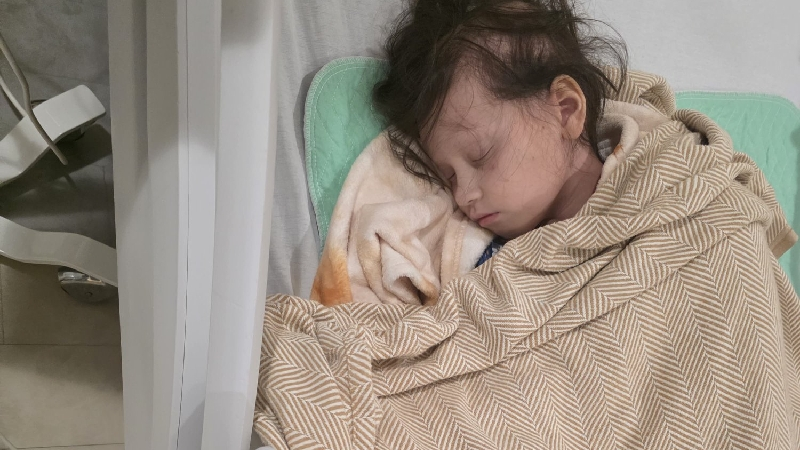
A Mother’s Worst Fear
It started like many childhood illnesses do — with a fever that wouldn’t break and bruises that didn’t seem to heal.
Her mother, Maggie, remembers the first night Aleida complained of feeling tired. “She wasn’t herself,” Maggie said. “Her color looked off, her energy was gone. I thought maybe it was the flu.”
But the tests told a different story.
The doctor’s face changed as he read the results — the kind of look no parent forgets.
Then came the words that ripped Maggie’s world apart:
“Your daughter has leukemia.”
Everything after that felt like a blur — the hospital admission, the IV lines, the chemotherapy schedule. The world kept moving, but Maggie’s heart stood still.
“I never imagined our life could change so fast,” she said quietly. “One minute we were planning her birthday. The next, we were fighting to keep her alive.”

A Tiny Warrior in a Big Fight
Aleida’s battle began at Texas Children’s Hospital, where she started an aggressive round of chemotherapy.
The doctors explained that AML doesn’t wait — it spreads quickly, attacking the very core of the body’s ability to fight infection. The only chance at survival was immediate, intensive treatment.
On Tuesday, Aleida began a higher dose of chemo. Within hours, the side effects hit hard.

“She’s been throwing up nonstop,” Maggie said, her voice breaking. “Her fever keeps spiking. She looks at me and says, ‘Mommy, make it stop.’ But I can’t. I can only hold her hand.”
For a mother, there is no greater agony than watching your child suffer — especially when you’re powerless to take away the pain.
Maggie stays at Aleida’s bedside day and night, sleeping in a chair, holding cold cloths to her daughter’s forehead, whispering prayers through tears.
“She’s so small,” she said. “And yet she’s stronger than anyone I know.”
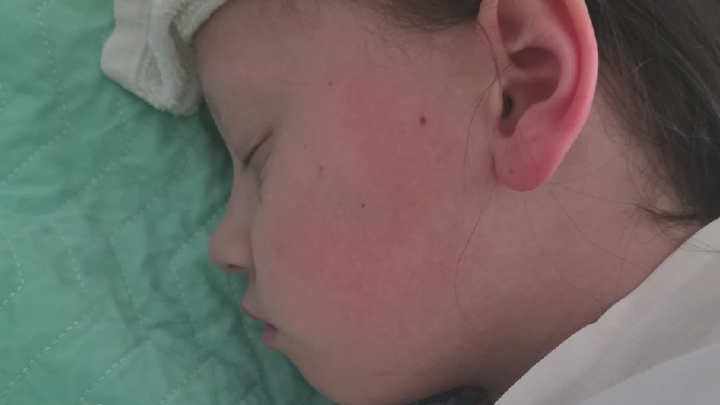
The Girl Who Refuses to Give Up
Even on her worst days, Aleida’s spirit shines through.
Between chemo sessions and long nights hooked up to machines, she still manages to smile. Nurses say she greets them every morning with a tiny wave and a whispered, “Good morning.”
When she feels strong enough, she draws pictures — hearts, stars, flowers — and tells her mom, “These are for when I’m all better.”
“She believes she’s going to beat this,” Maggie said. “She keeps saying, ‘God’s not done with me yet.’ And I believe her.”

But the road ahead is long and cruel.
Chemo doesn’t just destroy cancer cells — it destroys everything, good and bad. It wipes out immunity, steals appetite, weakens bones. For Aleida, it means vomiting for hours, losing her hair, and missing the outside world she once loved.
Her favorite stuffed animal, a soft pink bunny, sits beside her hospital bed. Its fur is worn from her small hands clutching it through every needle, every transfusion, every wave of nausea.
That bunny has become her battle flag — silent, soft, but unbroken.
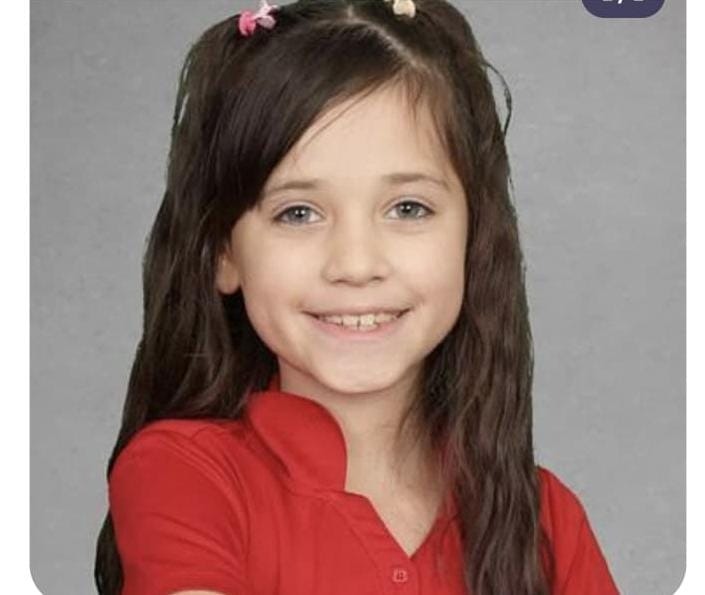
The Loneliness of the Long Night
The hardest part, Maggie says, isn’t the machines or the medicine. It’s the loneliness.
“You’re surrounded by doctors and nurses, but you still feel completely alone,” she said. “You sit there watching your child fight for her life, and you’d give anything to trade places — but you can’t.”

There are moments when Maggie sneaks into the hospital bathroom just to cry — to release the fear she hides from Aleida.
“I tell her she’s strong. I tell her she’s going to get better,” she said. “But sometimes I don’t believe it myself. And then she looks at me and says, ‘Mommy, don’t be sad.’ She’s comforting me when it should be the other way around.”
In those moments, Maggie is reminded that strength doesn’t always roar. Sometimes, it whispers from the lips of a nine-year-old who refuses to stop fighting.
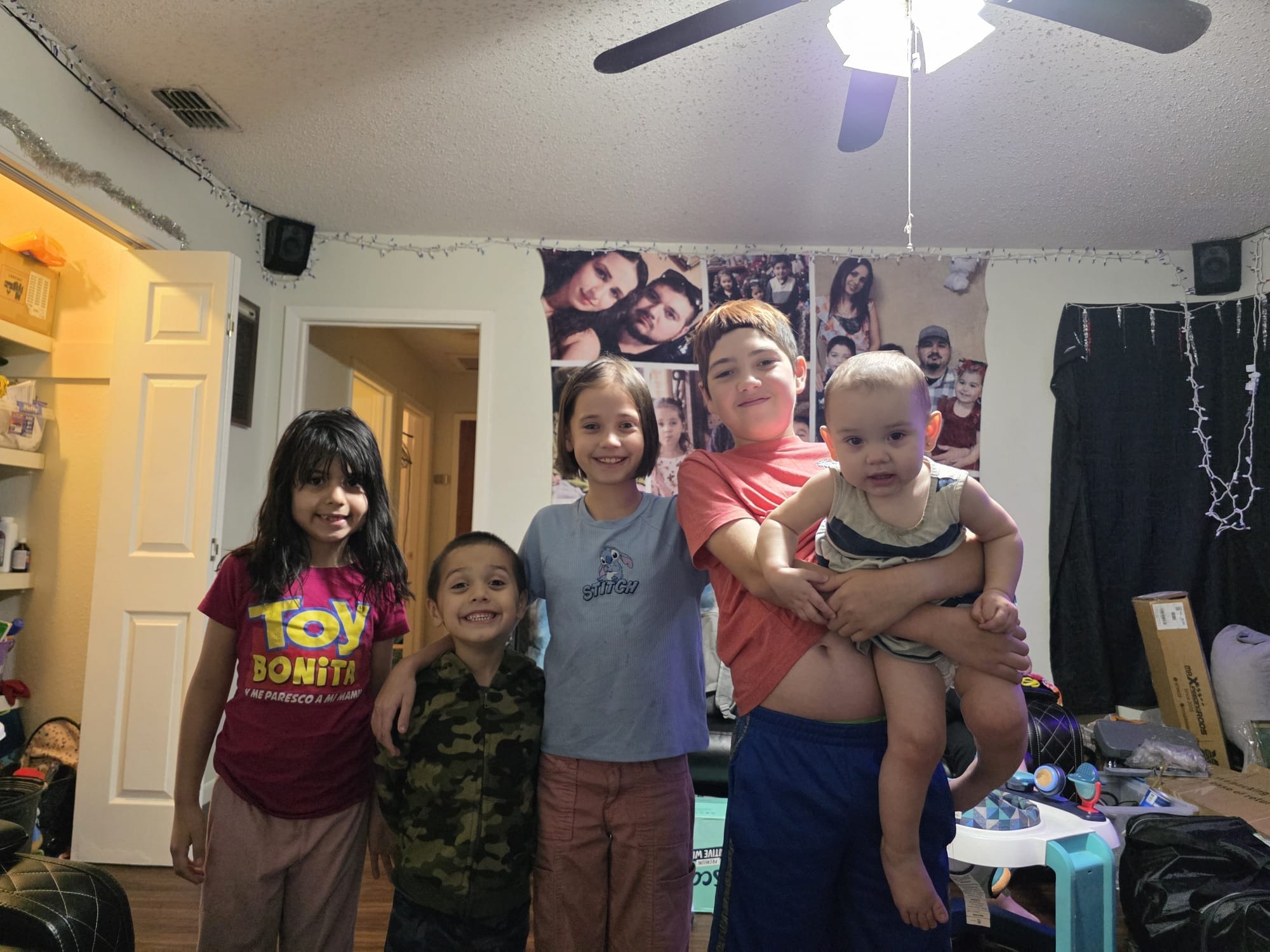
The Cost of Hope
Every battle like Aleida’s comes with invisible costs — emotional, physical, and financial.
Hospital bills stack up faster than paychecks. Maggie had to leave her job to stay by her daughter’s side, and the family now relies on donations and the kindness of others to get by.

But what she truly needs, she says, is prayer — faith to carry them through the nights when hope feels thin.
“People tell me I’m strong,” she said. “But I’m not. I’m just a mom trying to keep her little girl alive.”
Her voice trembles, but her eyes burn with determination. “I’ll never stop fighting for her. Not ever.”
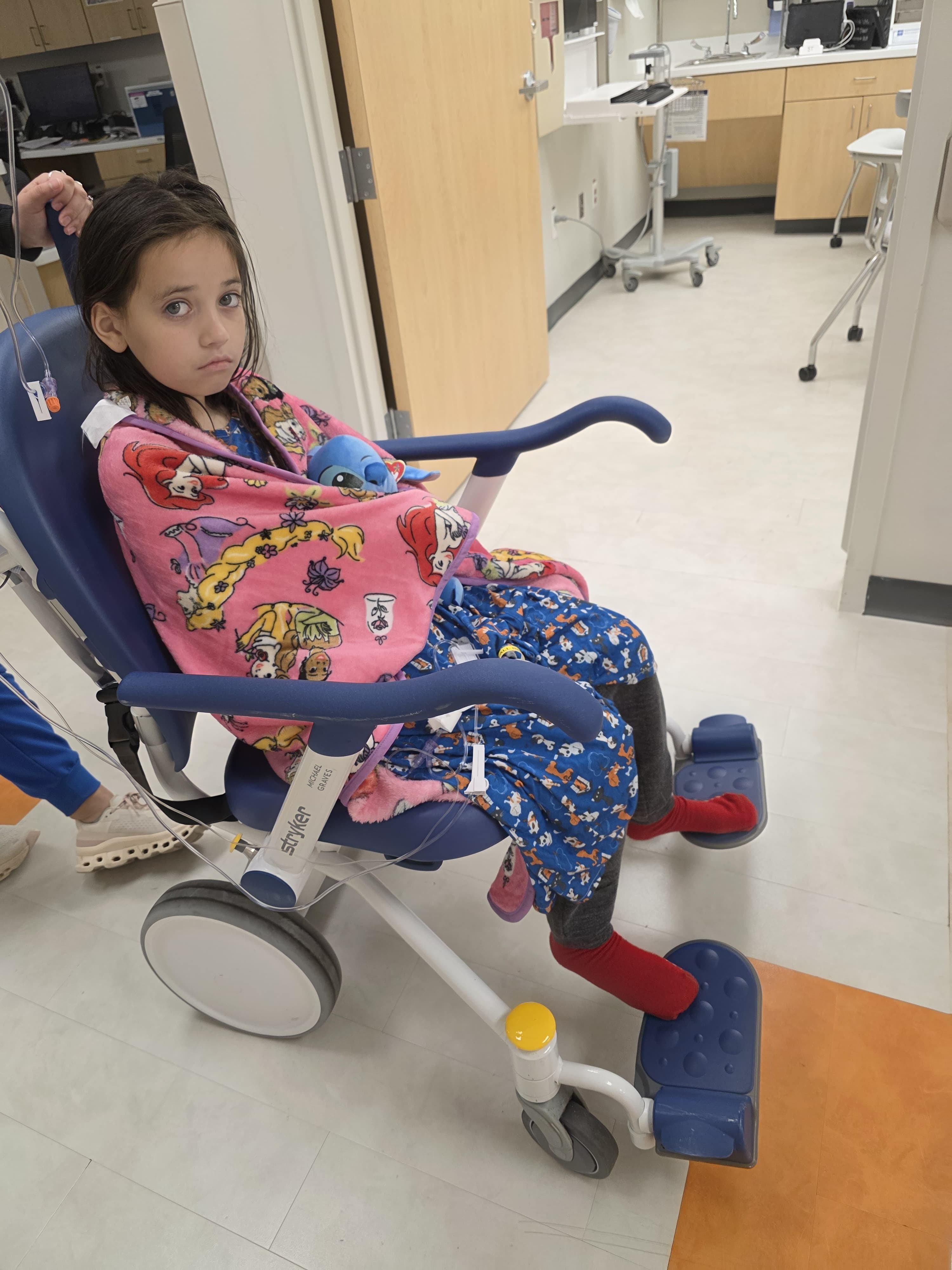
A Battle Bigger Than One Family
Leukemia doesn’t just affect the child who has it. It ripples outward — through families, friends, and entire communities.
Each diagnosis becomes a war fought by everyone who loves that child. Every update, every lab result, every sleepless night feels like a new round in an endless fight.
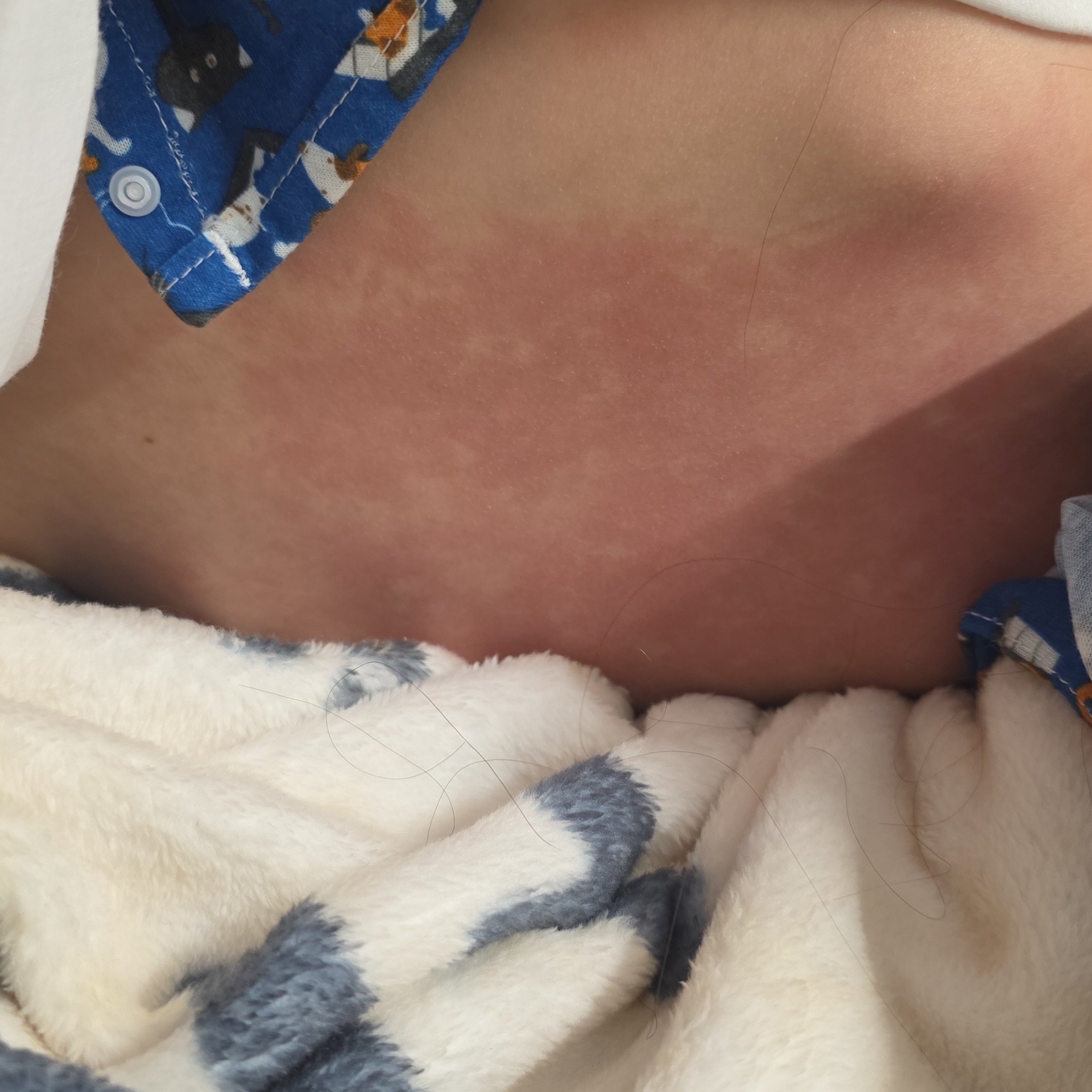
For Aleida’s community in South Texas, her battle has become a rallying cry. Churches have organized prayer chains. Local businesses have raised funds to help cover medical costs.
“Even strangers send messages,” Maggie said softly. “They tell us they’re praying. That means more than they know.”
Because in a world that can feel unbearably cruel, small acts of love — a message, a donation, a prayer — can keep hope alive.
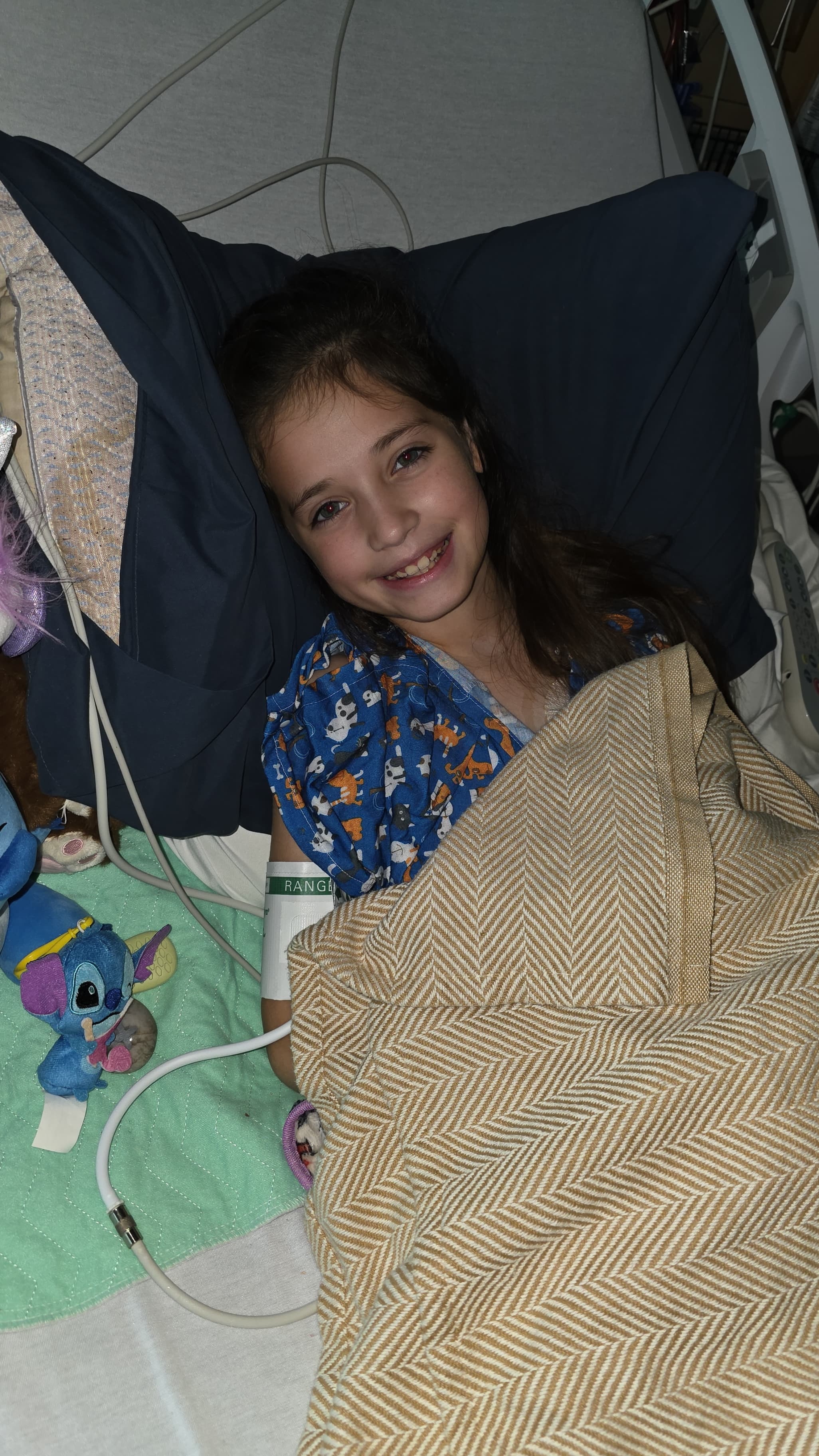
The Science Behind the Struggle
Acute Myeloid Leukemia is one of the most aggressive forms of childhood cancer. It begins in the bone marrow, quickly spreading to the blood and, if untreated, to organs throughout the body.
For a nine-year-old like Aleida, treatment means months — even years — of chemotherapy, followed by the possibility of a bone marrow transplant.
The odds are frightening: roughly 65% of children with AML survive long-term. But Maggie clings to that number like a lifeline.
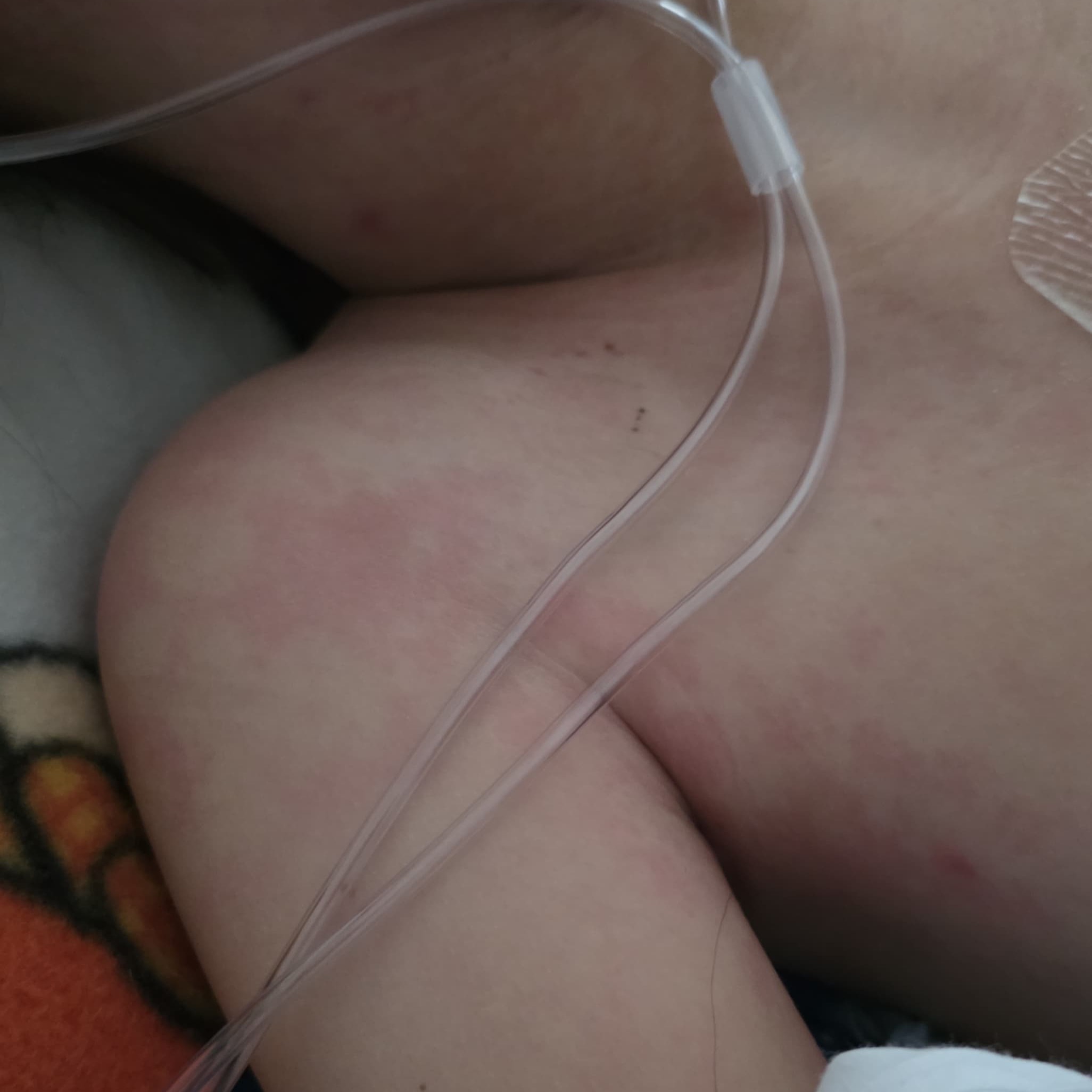
“She’s going to be one of the ones who makes it,” she insists. “She has to be.”
Doctors say her progress depends on how her body responds to this new chemo regimen. The side effects — the vomiting, the fevers, the fatigue — are signs of the battle happening inside her tiny body.
Every fever spike is a warning. Every drop in her blood count is a danger. But every new day she opens her eyes is a victory.
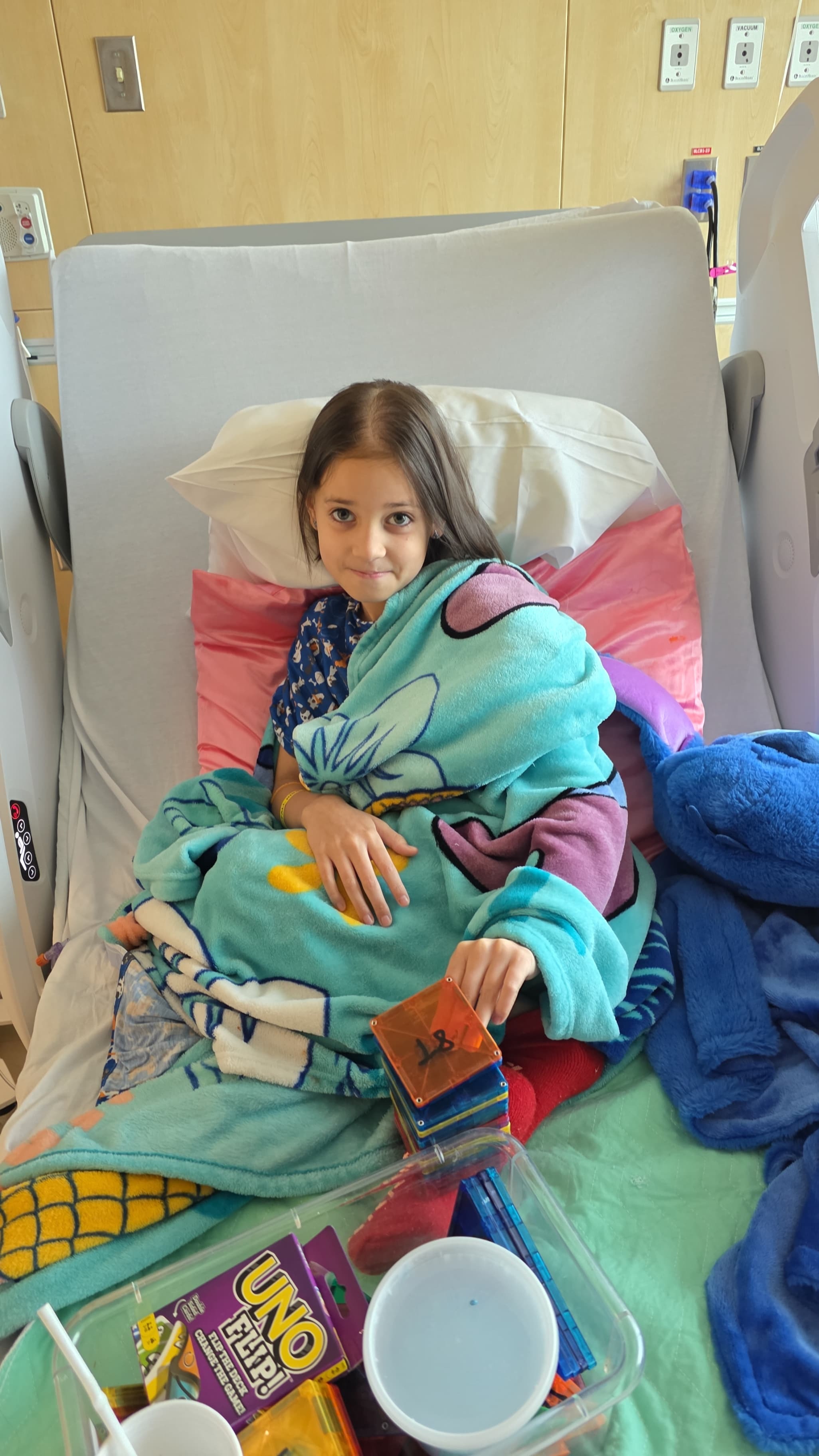
The Power of Faith
Faith, Maggie says, is the only thing keeping her from collapsing.
“I’ve begged God for a miracle,” she said. “And I believe He’s listening. I don’t know when or how, but I know He hasn’t forgotten us.”
When fear creeps in, she reads from the Bible aloud to Aleida, softly repeating Psalm 91 — “He will cover you with His feathers, and under His wings you will find refuge.”
Sometimes, Aleida hums along to her favorite worship song, her voice raspy but steady.
“She believes she’s already healed,” Maggie said. “And maybe she’s right. Maybe healing isn’t just physical — maybe it’s in the heart.”\
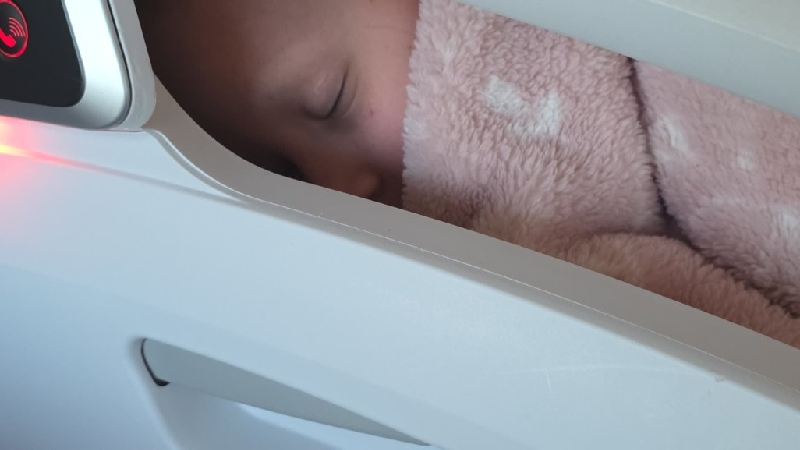
The Face of Courage
It’s easy to talk about bravery in the abstract — soldiers, heroes, firefighters. But true courage sometimes looks like a little girl smiling through pain, whispering prayers through fever, and refusing to give up even when her body is breaking.
Aleida doesn’t see herself as brave. When asked what she wants to do when she gets better, she simply says, “Go home.”
Home — to her bed, her toys, her cousins, her school friends. The simple things every child should have.
That’s what she’s fighting for.
That’s what her mother is clinging to.
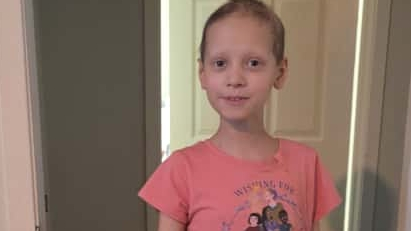
The Long Road Ahead
No one knows how long Aleida’s journey will be.
Doctors say there will be good days and bad — moments of progress and moments of setback. But Maggie refuses to let fear write the ending.
“She’s still here,” she said. “That’s all that matters. Every day she wakes up is a blessing.”
The hospital has become both battlefield and home. Nurses who once were strangers now feel like family. Doctors call her a “little warrior.” And even when she’s too weak to speak, Aleida squeezes her mom’s hand — her silent promise that she’s not giving up.
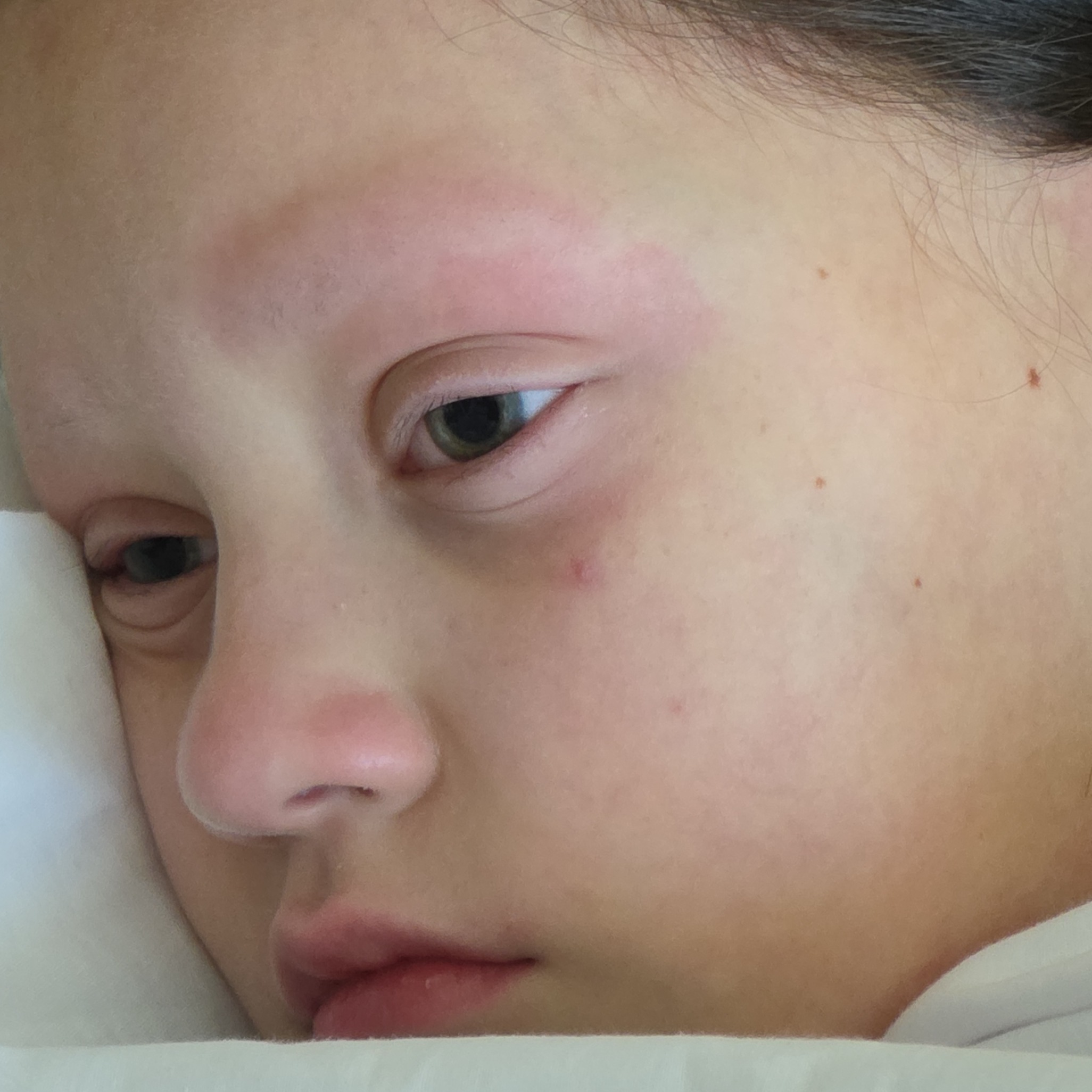
A Mother’s Plea
As she looks down at her daughter — pale, exhausted, but still fighting — Maggie whispers a prayer that has become her mantra.
“God, give her strength. Take the pain. Let her live.”
She doesn’t ask for much. Just another day. Another smile. Another chance.
And for now, that’s enough.
Because every heartbeat is hope. Every breath is grace. Every moment with her daughter is a miracle.
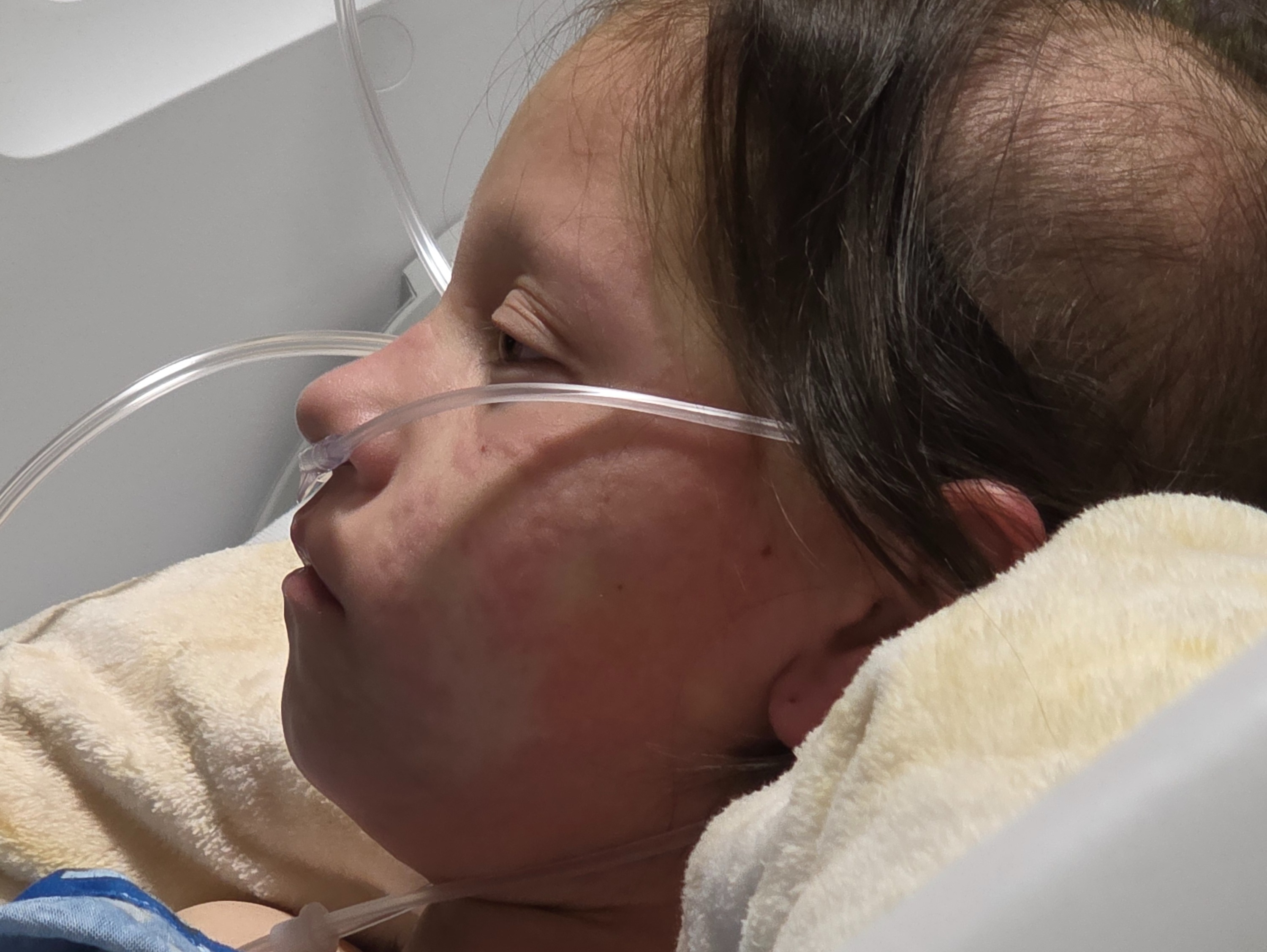
The Light That Refuses to Go Out
In the darkest corners of the hospital, where exhaustion and fear threaten to take over, Aleida’s light still shines.
Her laughter — rare but real — cuts through the silence like sunlight through clouds. Her smile reminds everyone who meets her that even the smallest souls can hold the biggest courage.
“She’s my hero,” Maggie said. “She doesn’t even know it.”
For Aleida, the fight isn’t over. But neither is the hope.
And somewhere in that small, sterile room in Texas, a little girl with a pink bunny and a mother’s love continues to teach the world what real strength looks like.
Leave a Reply